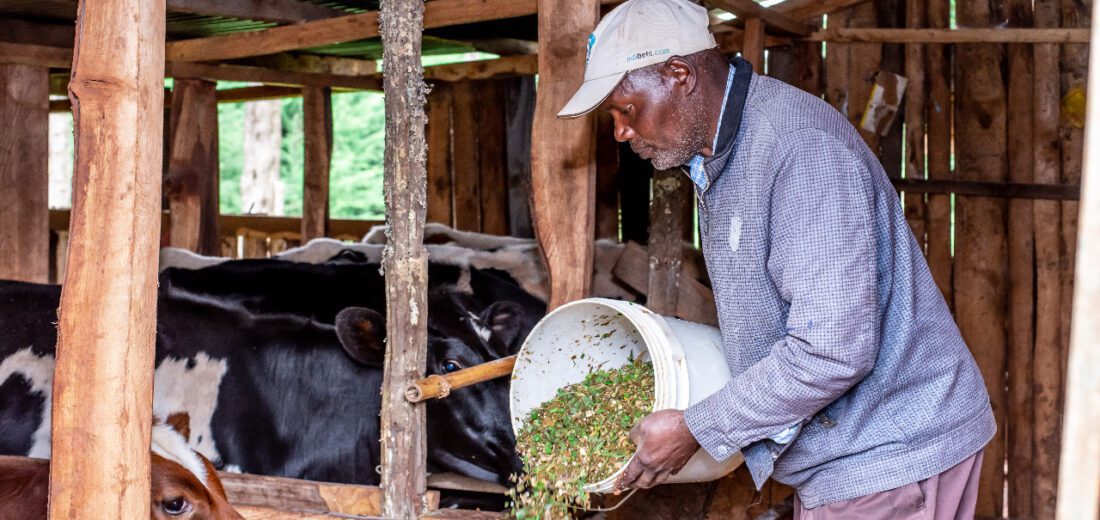
International milk trade: Giving with one hand, taking with the other.
The overproduction of milk in the Netherlands not only leads to an environmental crisis in the Netherlands, but the export of milk powder to Africa also seems to be of marginal benefit there either. Local dairy farmers cannot compete with cheap imported milk powder. This was already known in West Africa, but it is now also happening in Kenya, those involved in the dairy sector there say. At the same time, the Netherlands put a lot of development money into the dairy sector in Africa. Is this coherent?
The sachets and packets on which Dutch dairy is sold worldwide, from Asia to Africa, often feature a picture of a fresh green meadow with cows in that faraway flat land. And those cows produce a lot of milk. Since milk quotas were abolished in 2015, Dutch milk production has grown strongly and dairy farms have become larger in scale. That not only contributed to the nitrogen crisis the Netherlands is now in but also led to problems abroad. Imports of soy for cattle feed from Latin America contribute to deforestation. But exporting milk abroad also leads to problems.
Two-thirds of all Dutch milk is exported. Despite the subsidy Dutch farmers receive, incomes for their dairy farmers are low because the world market price of milk is low. Most of the exports are sent to Germany and other neighbouring countries. But dairy companies have also started looking for new markets further away to sell their surplus milk.
Besides Asia, this is increasingly happening in Africa. Dairy companies such as FrieslandCampina have built factories in West Africa where imported milk powder is processed into small bags of dissolving powder or cans of condensed milk. These are sold on the side of the street near each corner. The advantage is that it brings an affordable source of protein to poor people, which can be very beneficial for children’s nutrition. But imported milk is much cheaper than locally produced milk. A growing proportion of imports also consists of a powdered mixture of skim milk and palm oil – which in turn causes deforestation. Artificial milk is less healthy and is sold in West Africa at an even lower price, often without consumers knowing it is not real milk.
At that low price, local livestock farmers in West Africa cannot compete, Oxfam Belgium concluded in the report ‘Don’t export our problems.’ A strong dairy sector is not getting off the ground there, resulting in a loss of farmers’ income and employment. They blame this on European agricultural and trade policies, which encourage the overproduction of milk and the export of subsidised surpluses.
For decades, FrieslandCampina could import and sell milk powder in Nigeria and Ivory Coast without having to do anything in return. But at a certain point, the Nigerian government made it a condition that international dairy companies also had to buy milk locally. This was to trigger the development of the local milk sector. Previously, some 30 international dairies were operating in Nigeria; that number dropped to six after this measure. So, have all of them started buying milk locally? To set up a local production chain and train farmers, FrieslandCampina requested and received a subsidy from the Dutch government. Thanks in part to that development cooperation subsidy, it retained its import license and was able to continue importing milk powder. The question is whether the Netherlands was not spending development money with one hand to build up a sector, only to destroy it with the other by importing milk powder.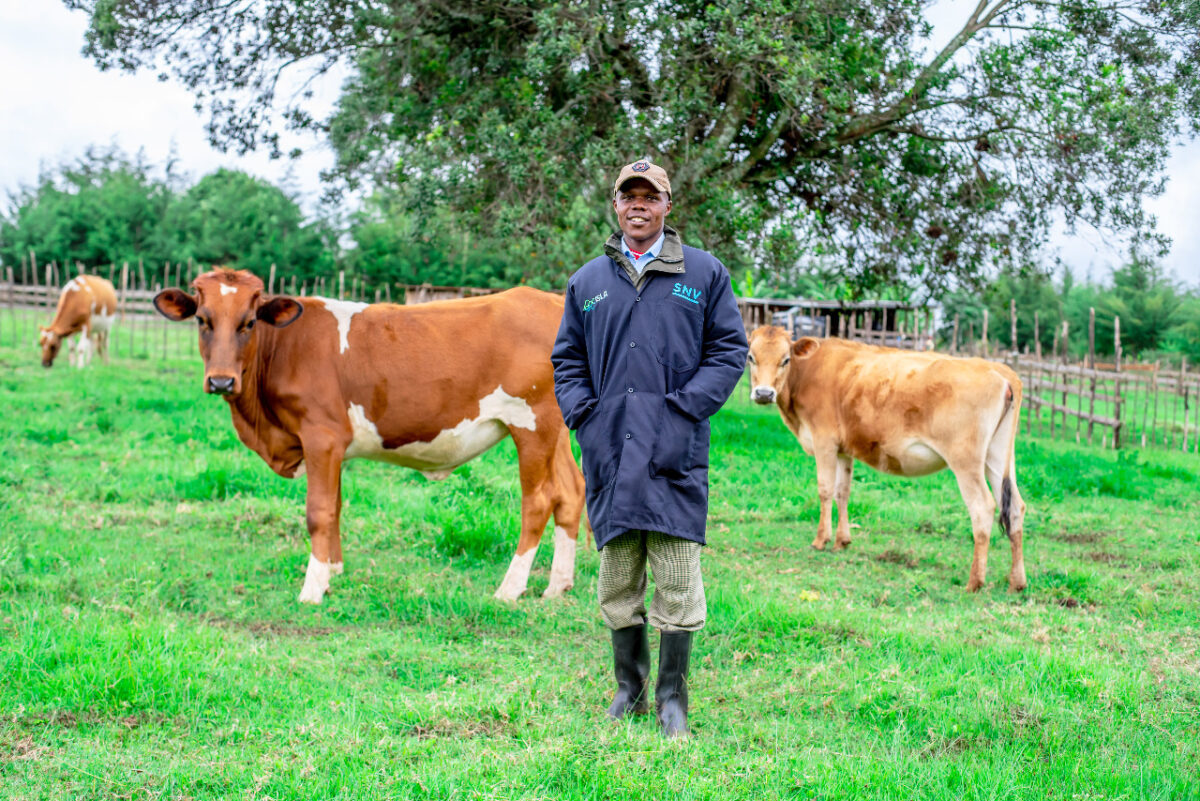
‘You can indeed question whether that is coherent policy,’ says Jan van der Lee. He is an expert on dairy farming in Africa at Wageningen Livestock Research, part of Wageningen University & Research. ‘There is nothing wrong with giving subsidies to build a sector. However, the question is how aggressively the Dutch government negotiated with FrieslandCampina on how much local milk to buy and how much they could continue to import. Were hard demands made, or was it afterward of “oh it didn’t work out, too bad, and thanks for the millions.” It is also questionable whether the ministry and embassies still have enough substantive capacity in-house after all the cutbacks to be able to make those kinds of trade-offs.’
Kenyan sector threatened
In Kenya too, the import of cheap milk powder poses a threat to the dairy sector, says Professor Bockline Bebe, professor of Livestock Production Systems at Egerton University. He is well acquainted with the Kenyan dairy sector.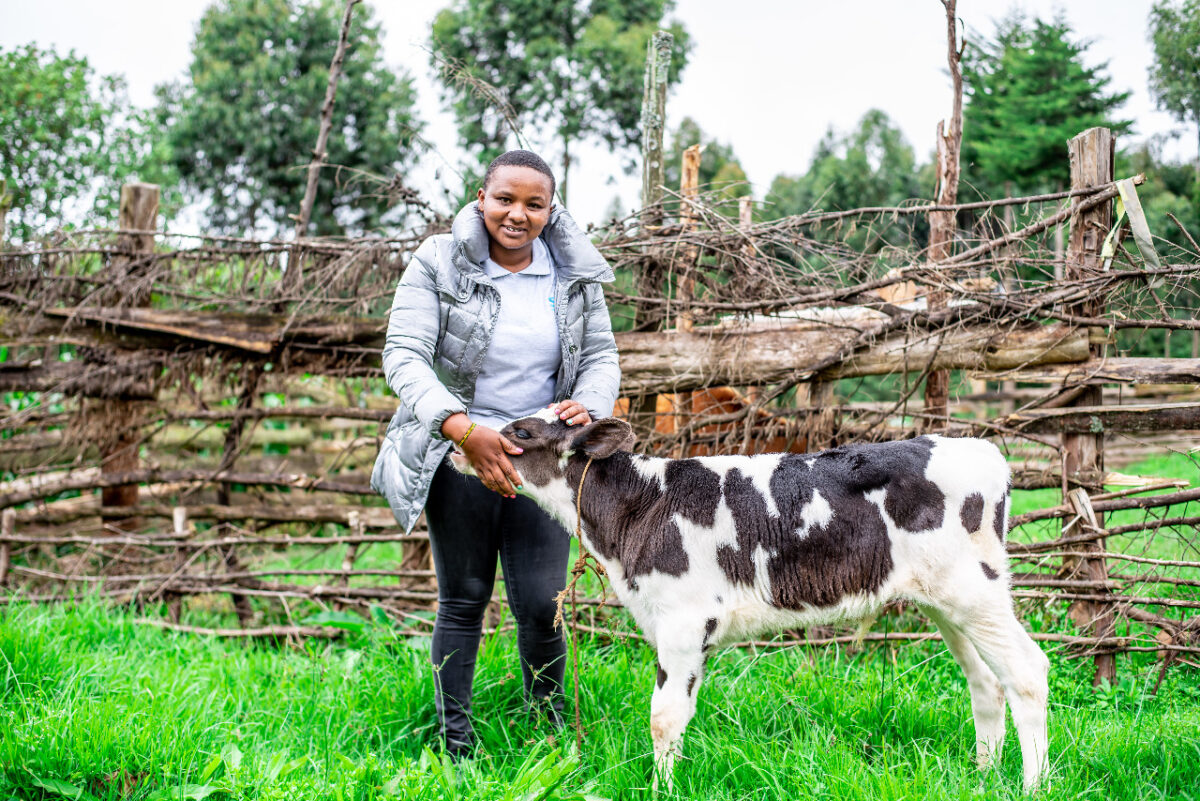 Unlike in West Africa, dairy farming in East Africa is an economically critical sector that employs millions of farmers and accounts for four percent of Kenya’s economy. Politically, the sector is also significant because all those farmers make up a significant part of the electorate. Members of the (political) elite regularly appear to own large-scale dairy farms or have interests in the milk processing industry. For instance, former president Kenyatta’s brother owns the large dairy Brookside. There is a milk culture in Kenya; every Kenyan drinks milk with tea. In short, it is a very interesting market for international dairy companies and suppliers of machinery, equipment, or services for dairy farming.
Unlike in West Africa, dairy farming in East Africa is an economically critical sector that employs millions of farmers and accounts for four percent of Kenya’s economy. Politically, the sector is also significant because all those farmers make up a significant part of the electorate. Members of the (political) elite regularly appear to own large-scale dairy farms or have interests in the milk processing industry. For instance, former president Kenyatta’s brother owns the large dairy Brookside. There is a milk culture in Kenya; every Kenyan drinks milk with tea. In short, it is a very interesting market for international dairy companies and suppliers of machinery, equipment, or services for dairy farming.
‘Milk production costs are high in Kenya,’ says Professor Bebe. ‘If cheaper products come in through imports, there could be a shift in consumer choice.’ Kenyans would then be more likely to choose products made from imported milk powder, rather than milk from their country.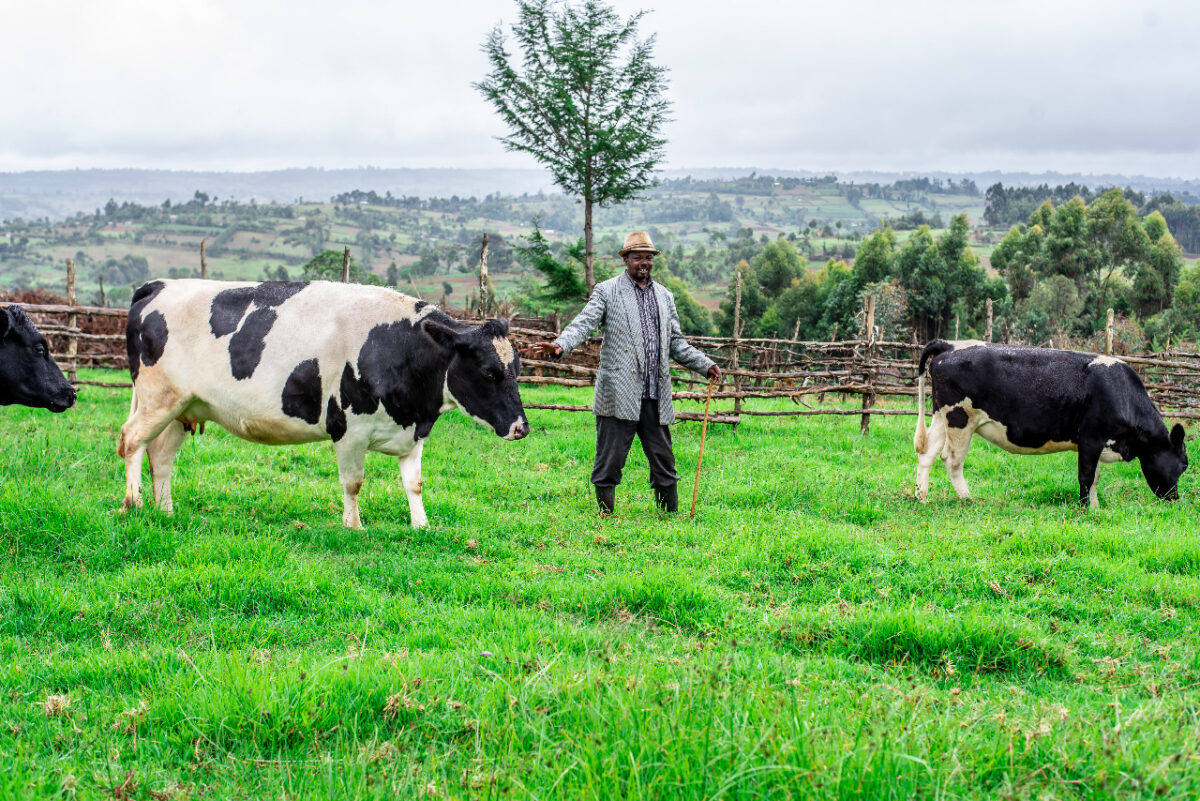
Similar noises also come from Uganda. ‘Importing cheap dairy into East Africa affects local dairy farmers,’ says Jane Nalunga, director of the Southern and Eastern Africa Trade Information and Negotiations Institute (SEATINI) in Uganda, a critical NGO that seeks to promote fair trade. ‘As a result, local dairy farmers get very low prices and their livelihoods are threatened.’ Like Bebe, Nalunga thinks the importation of cheap milk powder is limiting opportunities to add value to the milk made in East Africa’s dairy sector.
‘In the past, the government protected the market with import tariffs,’ says Prof Bebe. ‘But there is now a trade agreement in which tariffs are going to disappear.’ Opening up the market is not fair, says Bebe. ‘Because EU milk imports come from farmers who get a lot of subsidies. So that milk is cheap.’
The treaty he is talking about is the Economic Partnership Agreement agreed upon between the East African trading bloc, the East African Community, and the EU. The current sixty percent tariff wall would come down when this treaty comes into force, but that is not yet the case. Other East African countries like Tanzania and Uganda have not yet signed the treaty, so it does not yet apply. In the meantime, Kenya has started negotiations with the EU on a temporary bilateral adjustment to the treaty, which would allow the Kenyan market to enter earlier. Negotiations on this are also ongoing. At the same time, Kenya is negotiating with her East African neighbours on this. This is because if she partially opens her market to the EU, it will likewise affect Uganda, Tanzania, and other East African countries. Besides the EU, the US also wants access to the East African dairy market without or at much lower import tariffs.
At times, Kenya’s government allows exceptions to the existing tariffs. If scarce milk is produced domestically due to drought, a certain quota of milk powder may be imported from outside Africa at a much lower tariff. This will enable us to still have enough milk to meet demand. Figures from CBS show that despite the tariff wall, exports of milk products from the Netherlands to Kenya have risen sharply in recent years. Until 2015, it was almost nothing. In 2021, it was €7 million and in the first three quarters of 2022, €14 million worth of milk products were exported from the Netherlands to Kenya. ‘These rising imports are exacerbating the damage,’ says Bebe. ‘It limits local investment in processed dairy products, stifles the growth of the local dairy industry, and puts pressure on poor Kenyan milk producers and struggling dairy cooperatives.’
Jan van der Lee thinks that at the moment, imports of milk powder from outside Africa are not having that much of an impact on the Kenyan sector. ‘Kenyans spend an average of 100 euros per person on milk per year. That 14 million euros in imports is only 25 cents of that. That is negligible.’ The problem in Kenya is more the poor organisation of the sector, says Van der Lee. ‘Most milk is produced in the informal sector, where raw milk is sold directly from the farm. There is also a growing demand among the wealthy middle class for dairy products, and dairy processing companies make substantial money from this. But there is no confidence in the market. 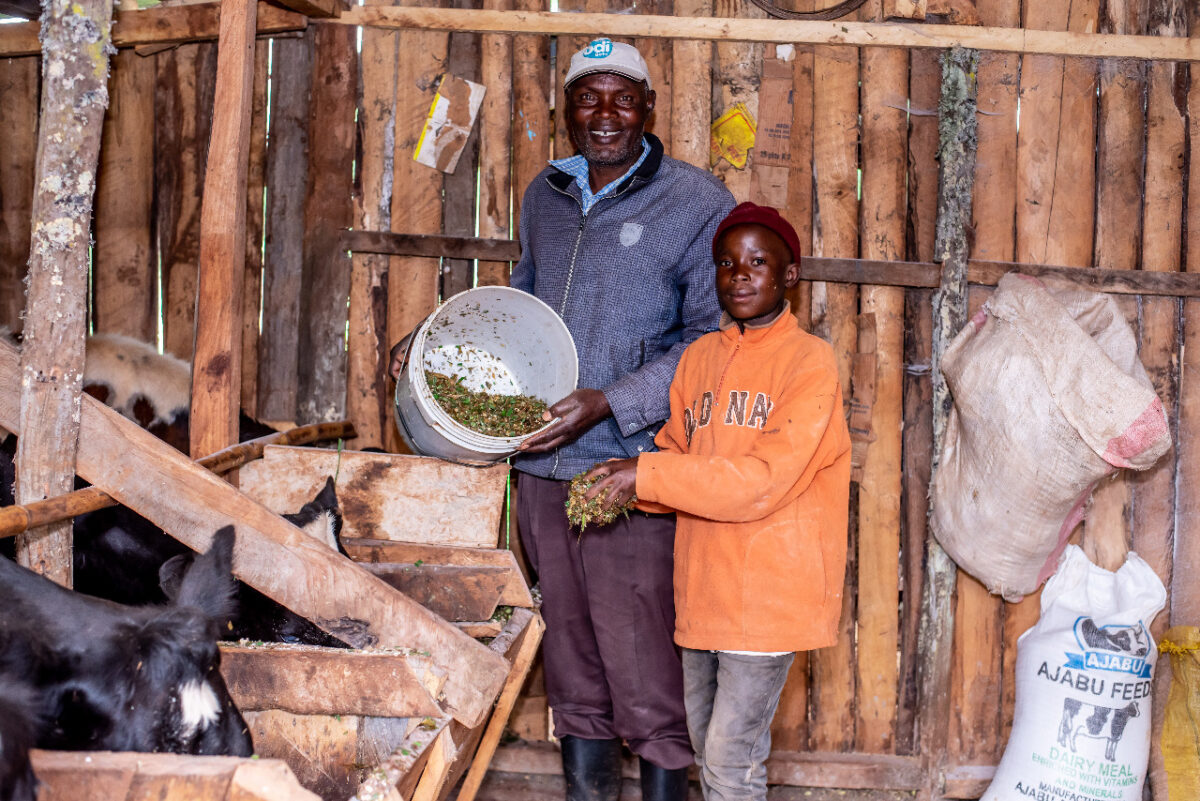 Farmers supply different cooperatives, and cooperatives in turn supply different processors, because they are not sure whether their milk will be purchased.’ Partly because of this, costs in the chain are very high, and Kenyan milk is relatively expensive.
Farmers supply different cooperatives, and cooperatives in turn supply different processors, because they are not sure whether their milk will be purchased.’ Partly because of this, costs in the chain are very high, and Kenyan milk is relatively expensive.
Unfair cheap imports
The threat to the Kenyan sector comes more from Uganda, says van der Lee, where twenty percent of the milk consumed comes from. ‘The internal East African market opened up a few years ago. Farmers in Uganda have more land, and the dairy chain there is organised much better and more efficiently than in Kenya. As a result, farmers there can produce cheaper, and export their surplus to Kenya.’
Violet Matiru thinks otherwise. Matiru works at the local environmental organisation Millennium Community Development Initiatives, collaborates with the Dutch organisation BothEnds, and is a consultant. She believes, like many other Kenyans that Uganda illegally imported milk powder from outside Africa, and secretly resold it to Kenya. ‘My brother saw mountains and mountains of milk powder from New Zealand at the Brookside dairy. It is processed, repackaged, and sold as fresh milk or yoghurt. People don’t know that when they buy it, it looks like fresh milk.’
Dutch experts doubt that milk powder is illegally imported through Uganda. Jan van der Lee does not rule this out. However, he thinks the increase in imports from Uganda has a different cause. This is because milk production in Uganda is much more efficient, which explains why so much milk comes from Uganda. The story about illegal imports of milk powder would be an excuse to shut down the market. The allegation of illegal imports led to a trade dispute between Uganda and Kenya. Former president Uhuru Kenyatta banned dairy imports, but current president Ruto reopened the conversation and reversed that measure.
If the trade agreement (the Economic Partnership Agreement) that the EU concluded with EAC comes into force and the tariff wall disappears, much more cheap milk powder from the Netherlands, or from elsewhere, could enter the Kenyan market. Several experts say that would be a serious threat to Kenya’s large dairy sector that employs a million farmers. Professor Bebe: ‘The Dutch dairy industry is part of the EU, and the EU has a policy of protecting their industries and their citizens first. I advise them: preach wine if you drink wine yourself.’ Countries in Africa should continue to be able to protect their markets with import tariffs, Bebe said, to limit unfair imports of cheap milk from subsidised EU farmers.
Anton Jansen works for SNV in Kenya and previously led a major development project in Kenyan dairy farming. He argues that if the Kenyan dairy market were no longer protected with import tariffs, it would be a blow to the local sector and its many farmers. ‘It will then become very difficult to compete against cheaper dairy products of better quality and taste that are imported. But I don’t think Kenya will let it come to that.’ Jansen thinks the Kenyan government will want to protect the market at all costs, just as it has so far. ‘There are too many vested interests throughout the chain for that, and too many rural households depend on the dairy sector for their income.’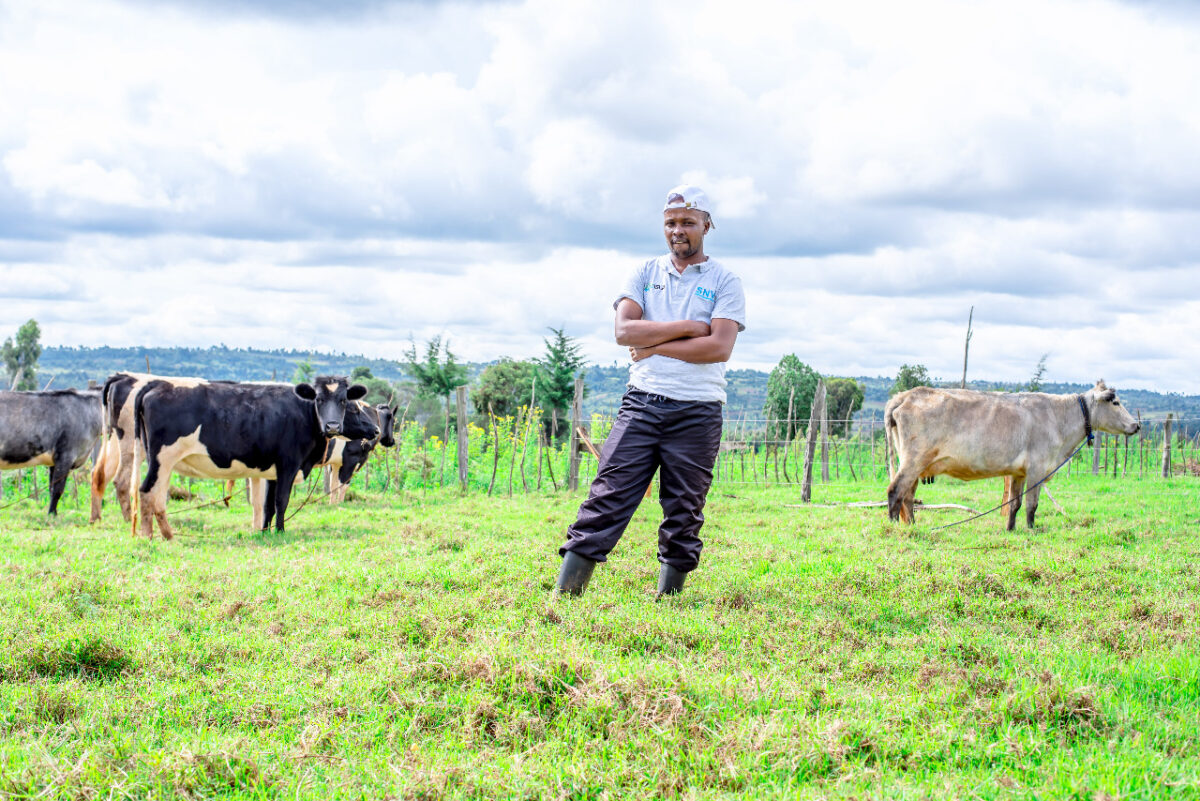
To be competitive, the cost price of milk in Kenya must come down and the quality of milk must improve. That was the aim of SNV’s Netherlands-backed development programme in Kenya, part of the Netherlands’ aid and trade policy. Critics say the Netherlands is promoting a type of agriculture that does not suit Kenya. They accuse a Dutch lobby led to a law against the sale of raw milk that harms millions of farmers.
Read more in part two as we analyse a controversial milk law in Kenya.

Leave a Reply